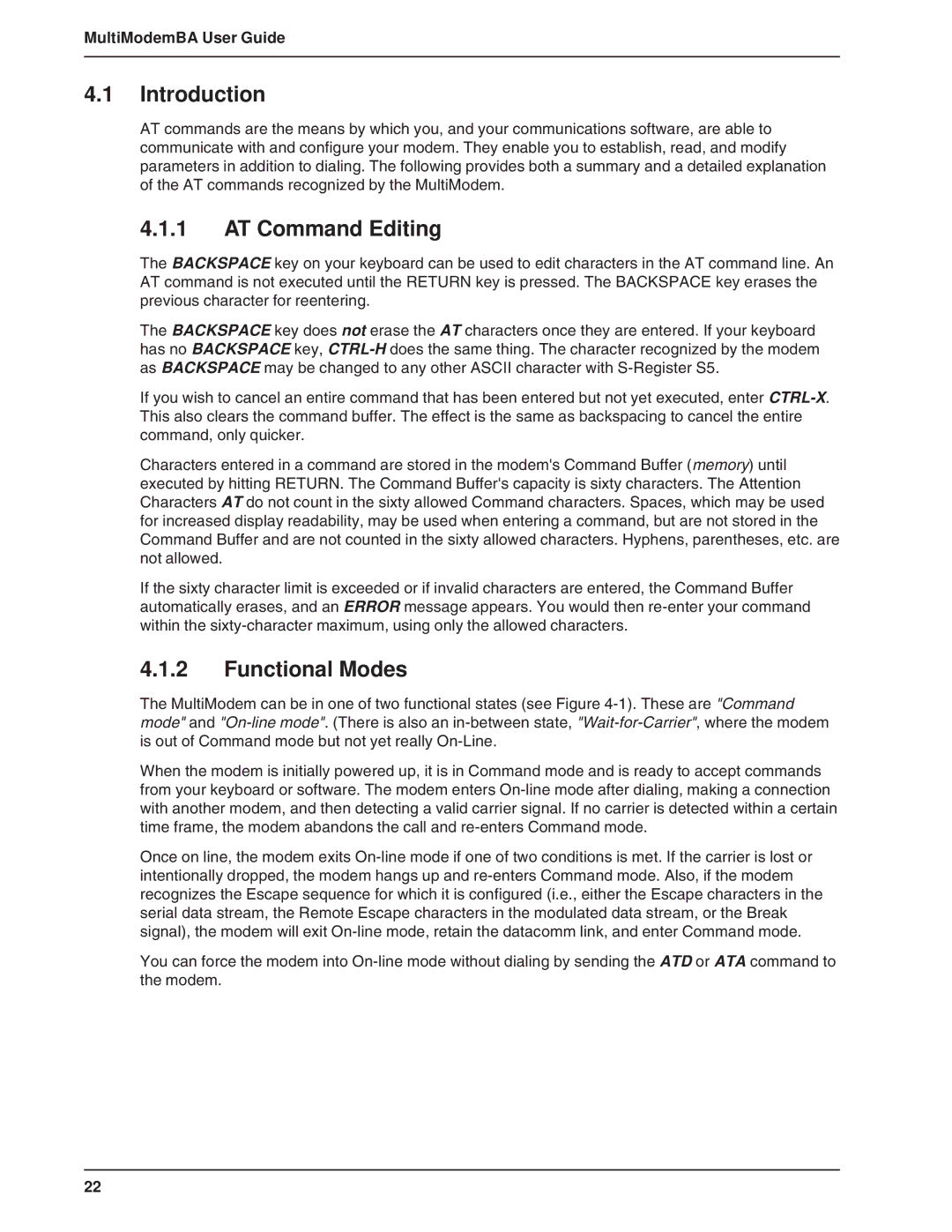
MultiModemBA User Guide
4.1Introduction
AT commands are the means by which you, and your communications software, are able to communicate with and configure your modem. They enable you to establish, read, and modify parameters in addition to dialing. The following provides both a summary and a detailed explanation of the AT commands recognized by the MultiModem.
4.1.1AT Command Editing
The BACKSPACE key on your keyboard can be used to edit characters in the AT command line. An AT command is not executed until the RETURN key is pressed. The BACKSPACE key erases the previous character for reentering.
The BACKSPACE key does not erase the AT characters once they are entered. If your keyboard has no BACKSPACE key,
If you wish to cancel an entire command that has been entered but not yet executed, enter
Characters entered in a command are stored in the modem's Command Buffer (memory) until executed by hitting RETURN. The Command Buffer's capacity is sixty characters. The Attention Characters AT do not count in the sixty allowed Command characters. Spaces, which may be used for increased display readability, may be used when entering a command, but are not stored in the Command Buffer and are not counted in the sixty allowed characters. Hyphens, parentheses, etc. are not allowed.
If the sixty character limit is exceeded or if invalid characters are entered, the Command Buffer automatically erases, and an ERROR message appears. You would then
4.1.2Functional Modes
The MultiModem can be in one of two functional states (see Figure
When the modem is initially powered up, it is in Command mode and is ready to accept commands from your keyboard or software. The modem enters
Once on line, the modem exits
You can force the modem into
22
